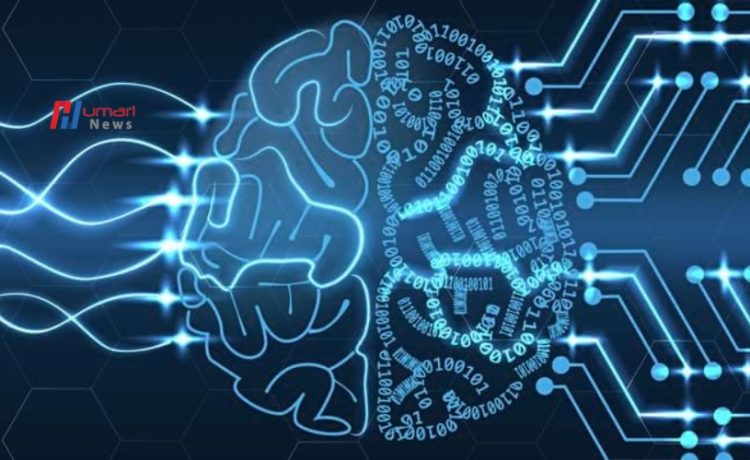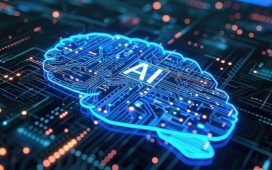Introduction
In today’s fast-paced world, the term “artificial intelligence” has become increasingly popular, but what exactly does it mean? In this article, we will delve into the fascinating world of artificial intelligence, exploring its definition, applications, and potential impact on society.
What is Artificial Intelligence?
Artificial intelligence, often abbreviated as AI, refers to the simulation of human intelligence processes by machines, especially computer systems. These processes include learning (the acquisition of information and rules for using the information), reasoning (using rules to reach approximate or definite conclusions), and self-correction.
AI technologies are designed to perform tasks that typically require human intelligence, such as visual perception, speech recognition, decision-making, and language translation. From self-driving cars to virtual assistants like Siri and Alexa, AI is all around us, shaping the way we live and work.
How Does Artificial Intelligence Work?
At the core of artificial intelligence is machine learning, a subset of AI that enables machines to learn from data without being explicitly programmed. Through algorithms and statistical models, machines can analyze large amounts of data, identify patterns, and make decisions with minimal human intervention.
Deep learning, a type of machine learning inspired by the structure and function of the human brain, allows machines to process data in a layered hierarchy, leading to complex learning and problem-solving capabilities. This technology powers applications like facial recognition, language translation, and medical diagnosis.
Applications of Artificial Intelligence
The applications of artificial intelligence are vast and diverse, spanning across industries such as healthcare, finance, transportation, and entertainment. In healthcare, AI is used for diagnosing diseases, personalized treatment plans, and drug discovery. In finance, AI algorithms analyze market trends, detect fraud, and optimize investment strategies.
Self-driving cars are a prominent example of AI in transportation, utilizing sensors, cameras, and algorithms to navigate roads safely and efficiently. In entertainment, AI powers recommendation systems for streaming services, personalized playlists, and virtual assistants for gamers.
The Impact of Artificial Intelligence on Society
As artificial intelligence continues to advance, its impact on society is both exciting and concerning. On one hand, AI has the potential to revolutionize industries, improve efficiency, and enhance decision-making processes. On the other hand, there are concerns about job displacement, privacy issues, and ethical implications of autonomous systems.
Governments and organizations are grappling with the ethical challenges of AI, such as bias in algorithms, transparency in decision-making, and accountability for machine errors. It is essential to establish guidelines and regulations to ensure that AI technologies are developed and deployed responsibly.
The 4 Types of AI
Artificial Intelligence (AI) is a rapidly advancing field that has the potential to revolutionize various industries and significantly impact our daily lives. As researchers delve deeper into the complexities of AI, they have categorized it into four main types: reactive machines, limited memory machines, theory of mind machines, and self-aware machines. Let’s dive into each type to get a better understanding of what AI truly entails.
1. Reactive Machines
Reactive machines are the most basic form of AI, as they operate solely based on the current input without any memory or past experiences.
These machines excel at specific tasks within a limited scope, such as playing chess or answering simple questions. However, they lack the ability to generalize beyond their immediate context, making them less versatile in real-world applications.
2. Limited Memory Machines
Limited memory machines, as the name suggests, have a limited capacity to store and recall past events.
These AI systems can interact with the environment more dynamically than reactive machines, enabling them to make informed decisions based on previous data. A prime example of this is self-driving cars, which use limited memory to navigate traffic and adjust their speed accordingly.
3. Theory of Mind Machines
Theory of mind machines represent a significant leap towards artificial general intelligence (AGI) by incorporating an understanding of other entities in their environment.
These machines can create mental representations of the world and possess a rudimentary understanding of other agents’ intentions and beliefs. While still in the early stages of development, this type of AI holds great promise for more human-like interactions and problem-solving capabilities.
4. Self-Aware Machines
Self-aware machines are the pinnacle of AI development, as they possess a comprehensive understanding of themselves, others, and the world around them. Achieving self-awareness in AI would enable machines to exhibit true consciousness and exhibit complex emotions and behaviors. While this level of AI remains a distant goal, researchers are continuously pushing the boundaries of technology to bring us closer to this groundbreaking achievement.
Conclusion:
In conclusion, artificial intelligence is a powerful technology that has the potential to transform the way we live and work. By understanding the definition, applications, and impact of AI, we can navigate the opportunities and challenges that come with this exciting field. Embracing artificial intelligence responsibly will enable us to harness its full potential for the benefit of society.







